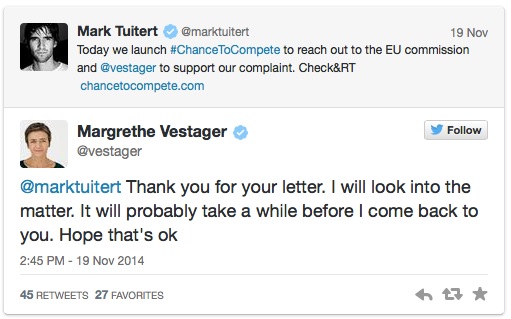Editor’s note: This report compiles all relevant news, events and materials on
International and European Sports Law based on the daily coverage provided on
our twitter feed @Sportslaw_asser. You are invited to complete this survey via the comments section
below, feel free to add links to important cases, documents and articles we
might have overlooked.
The Headlines
September hosted the very last bit of the sport summer 2016, most
notably in the form of the Rio Paralympic Games. Next to the spectacular
achievements displayed during these games, in the realm of sports law similar
thrilling developments hit town. The first very much expected #Sportslaw
highlight was the decision by the German Bundesgerichtshof
in the case concerning SV Wilhelmshaven. The second major (less expected) story
was the Statement of Objections issued by the European Commission against the International
Skating Union.More...
In June 2014, two prominent Dutch speed skaters, Mark Tuitert
(Olympic Champion 1500m) and Niels Kerstholt
(World Champion short track), filed a competition law complaint against the
International Skating Union (ISU) with the European Commission.

ChanceToCompeteTwitter.png (50.4KB)
Today, the
European Commission announced that it has opened a
formal antitrust investigation into International Skating Union (ISU) rules
that permanently ban skaters from competitions such as the Winter Olympics and
the ISU World and European Championships if they take part in events not organised
or promoted by the ISU. The Commissioner for Competition, Margrethe Vestager, stated that the Commission "will
investigate if such rules are being abused to enforce a monopoly over the
organisation of sporting events or otherwise restrict competition. Athletes can
only compete at the highest level for a limited number of years, so there must
be good reasons for preventing them to take part in events."
Since
the case originates from legal advice provided by the ASSER International
Sports Law Centre, we thought it would be helpful to provide some
clarifications on the background of the case and the main legal issues at
stake. More...